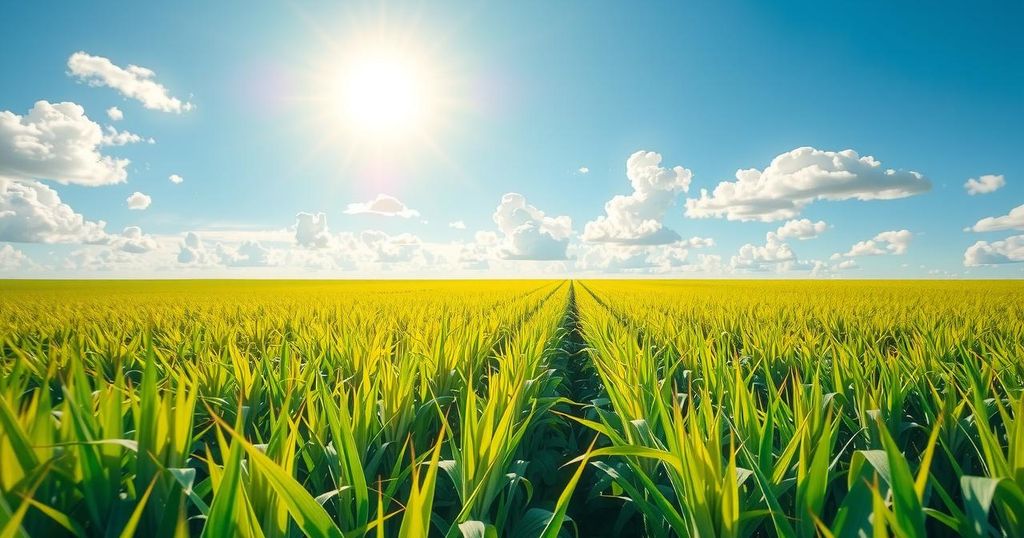The Impact of Rising CO2 on Crop Nutrition and Global Food Security

Rising atmospheric CO2 levels threaten crop nutrition, leading to significant declines in essential minerals and proteins in staple crops, thereby jeopardizing global food security, particularly affecting vulnerable communities. Effective nature-based solutions and further research on plant biology are essential to mitigate these challenges.
Climate change, primarily driven by greenhouse gas emissions, poses a significant threat to global food crops by altering rainfall patterns and impacting crop quality at a cellular level. Recent research published in Engineering indicates that rising atmospheric carbon dioxide (CO2) concentrations lead to complex trade-offs for many plants, particularly staple crops such as rice, corn, and wheat. While elevated CO2 levels may enhance photosynthesis and growth rates, they simultaneously reduce nitrogen levels, compromising the plants’ protein and amino acid production, which diminishes nutritional quality.
The report highlights that increased atmospheric CO2 concentration has already reduced nitrogen content in various crop species by 14% and woody vegetation by 21%, irrespective of nitrogen fertilizer application. Mineral nutrient contents in grains, such as rice and maize, have been adversely affected under high CO2 levels, with phosphorus, sulfur, iron, zinc, copper, and manganese values declining significantly.
The international study found wheat grain protein reduced by 7.4% due to elevated CO2 levels, leading to concerning implications for nutrition, particularly among vulnerable populations. Professor Felix Dakora, a leading researcher, emphasizes that declines in amino acids and mineral content in staple crops will lead to a surge in conditions like protein-calorie malnutrition and micronutrient deficiency globally, particularly affecting poorer rural communities.
The repercussions are not limited to human health; diminished nutrient content in crops affects the food chain overall. Livestock fed on nutrient-poor pastures yield lower-quality meat, milk, and eggs, exacerbating dietary deficiencies. Similarly, grains with low nutrient levels can lead to further health challenges, including increased rates of diabetes and malnutrition.
To address rising CO2 levels, the research advocates for the implementation of nature-based solutions to climate change, such as the Great Green Wall of Africa, aimed at restoring 100 million hectares of degraded land. However, further research is essential to comprehend the mechanisms affecting plant biology under these changing conditions.
Professor Dakora notes the necessity for detailed studies on climate change’s impact on crop species. This includes investigating the role of soil microbes in plant health, which can improve nutrient accessibility, alongside the potential benefits of genetic modifications in crops to counteract these challenges.
In conclusion, the rising levels of atmospheric CO2 threaten global food security by decreasing the nutritional quality of essential crops, risking health and nutrition for vulnerable populations. The repercussions extend beyond direct human consumption, affecting livestock and the broader food chain. Addressing these challenges requires a multifaceted approach, including nature-based solutions and continued research into climate impacts on agricultural systems.
Original Source: cosmosmagazine.com






